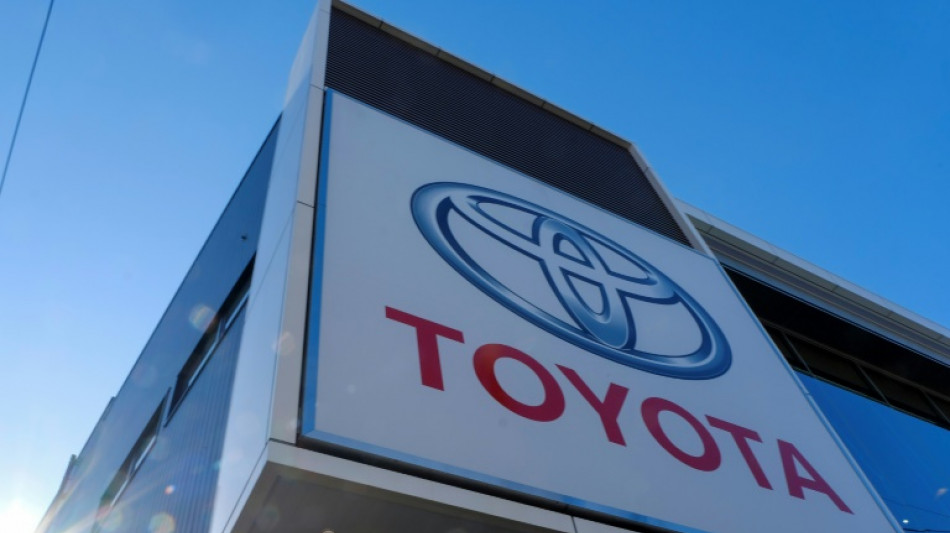
Toyota quarterly net profit beats estimates despite chip shortage

Toyota on Wednesday logged a forecast-beating net profit of $6.8 billion for the three months to December, even as a global chip crunch and a pandemic-driven parts shortage forced production cuts.
The Japanese auto giant, which kept its crown as the world's top-selling carmaker in 2021, left its annual net profit forecast unchanged but slightly lowered its full-year vehicle sales target.
It posted a 791.7 billion yen net profit for the three months to December, down around five percent on-year but far better than the 619.2 billion yen predicted by Bloomberg analysts.
For the nine months to December, the firm logged net profit of 2.31 trillion yen, a jump of 57.8 percent on-year. Sales for the same period rose 19.2 percent to 23.26 trillion yen.
"Despite negative factors such as constraints on supply due to the shortage of semiconductors and the spread of Covid-19, as well as the sharp rise in raw material costs, we achieved higher sales and profits" in the first nine months of the financial year, Toyota said in a statement.
This was a result of sales and marketing initiatives, "supply chain efforts" and the appeal of its new products, the company added.
The effect of foreign exchange rates boosted its operating profit by 445 billion yen in the nine-month period, it said.
Toyota cited the pandemic and chip shortage on a decision to slightly lower its production projection for the year to 8.5 million units from nine million, having already reduced it from 9.3 million in November.
"Despite reducing the production volume forecast, we have left the operating income forecast unchanged, taking into account the depreciation of the yen and the accumulation of profit improvement activities," Toyota said in the statement.
When the Covid pandemic first triggered a global drought of semiconductors -- an essential component of modern cars -- Toyota appeared better placed than its rivals to weather the crunch, having strengthened ties with its domestic suppliers after Japan's 2011 earthquake and tsunami.
But with the crisis showing no signs of ending, the automaker has found itself unable to escape the effects.
A weaker yen, high demand and internal cost-cutting measures have cushioned Toyota's profits despite the production cuts, and on Wednesday it maintained its full-year profit forecast of 2.49 trillion yen.
Toyota hung on to its title as the world's top-selling automaker last year when it sold nearly 10.5 million vehicles -- a jump of about 10 percent from 2020, including units made by its Daihatsu and Hino subsidiaries.
The firm increased its lead over German rival Volkswagen, which shifted 8.9 million vehicles in 2021, down 4.5 percent on-year owing to the chip drought.
The Japanese company also led US automobile sales last year, overtaking General Motors for the first time.
A. Bogdanow--BTZ

 London
London

 Manchester
Manchester
 Glasgow
Glasgow
 Dublin
Dublin
 Belfast
Belfast
 Washington
Washington
 Denver
Denver
 Atlanta
Atlanta
 Dallas
Dallas
 Houston Texas
Houston Texas
 New Orleans
New Orleans
 El Paso
El Paso
 Phoenix
Phoenix
 Los Angeles
Los Angeles



